QuestionMy 9 month old Great Dane has been chewing alot when we leave. I also have a 3 year old german shepard and they get along great. My Dane was abused by her previous owner so she doesnt handle any sudden movements or raising your voice. I have always felt leary of kenneling but would like to know the benefits of it.
AnswerCassie,
Kenneling/Crate training is one of the best things you can do for your dog, or should I say puppy. Danes take a really long time to mentally mature...their bodies may get large fast but their minds take a while to catch up.
I highly encourage owners of any breed to kennel/crate their puppies when they are away from home. Based on the information you have provided me it is clear that your dog has separation anxiety which may have been caused by her abuse.
Dogs in general are den animals because they are decedents of wolves who are den animals. A crate should never be used as a form of punishment, a crate should be used as their personal space, a "safe zone" if you will. You want to introduce the crate as a good thing for her. Get a crate that is big enough for her to get up, turn around and lay down. Her head should not be able to touch the top of the crate. Depending on how big your girl is, generally they need a "colossal" crate. I am including a link to one for your convenience. This is directly through midwest but I am sure with some research you can probably find one for cheaper.
http://www.midwestpetproducts.com/midwestdogcrates/1154u
The process for crate training is fairly simple but I always suggest doing it on a weekend or when you have 2 full days of being able to work on getting your puppy accustomed to the crate.
Step 1: Set up the crate and leave the door open so that your puppy can explore the crate, smell the crate, and go in and out without being forced in and locked in.
Step 2: Using treats lure your puppy into the crate using a marking word like "kennel" once she is in the crate. Close the door for 5 seconds once she is in and then let her back out and treat again.
Step 3: Repeat step 2 and increase the amount of time you close the door. Make sure you reward for going into the crate, and reward when you let her out.
Step 4: Once you are able to successfully tell her "kennel" or whatever word you use and she goes to her crate you have successfully adapted your pup to using a crate in a positive manner.
**Make sure that if she starts barking in the crate you DO NOT let her out during this time. A lot of puppies bark and whine in the crate and once you let them out when they do it...that will be their "saving grace" for getting let out of the crate and you will have a howling Dane trying to get you to let them out of the crate every time they go in it. Stand your ground, if she continues to bark, wait until she settles down and stops, ONLY then go in and let her out. This may take 2 minutes, 20 minutes or 2 hours...but don't give up. Generally they settle down quickly when they don't get what they want.
This teaches your puppy that the crate is 1) A good thing and 2) that you are coming back for her and she will be let out(eventually). The rule of thumb is that a puppy can be left in the crate the amount of hours as old as the puppy is in months. For example, your puppy is 9 months old so she can be left in the crate for 9 hours, which is really the maximum amount of time any dog should be crated daily.
The benefits of crate training is knowing that when you are not home, your belongings, and things that do not belong to her will remain intact. Crate training a puppy is crucial as she can be in danger of hurting herself if she chews something and swallows it. A blockage can be life threatening and if it is not caught in a timely manner can lead to death if left untreated. Puppies are also notorious for eating house plants, chewing through drywall, eating electrical cords causing burns to the mouth and face, getting wrapped up in strings from blinds and being suffocated by them as well as being wrapped in telephone cords(though most people have cordless phones these days). Those are some of the things I have personally seen clients puppies do while they were not home.
Since she hasn't been crated before it will be a new experience for both her as well as you. Keep everything positive and rewarding! But make sure that you do not reward bad behavior. She will get used to the crate quickly if you make it a positive experience.
Though I usually tell people to stay away from putting bedding and toys in the crate, do that at your own discretion. If she chews up things when left out, she will most likely chew things up that go in the crate with her. There are a few toys that are safer but if you have a really aggressive chewer I would just stay away from putting things in the crate with her until she stops chewing things altogether.
I hope this helps ease your mind and shows you the benefits of crate training. Good luck! If you have any other questions feel free to respond back.

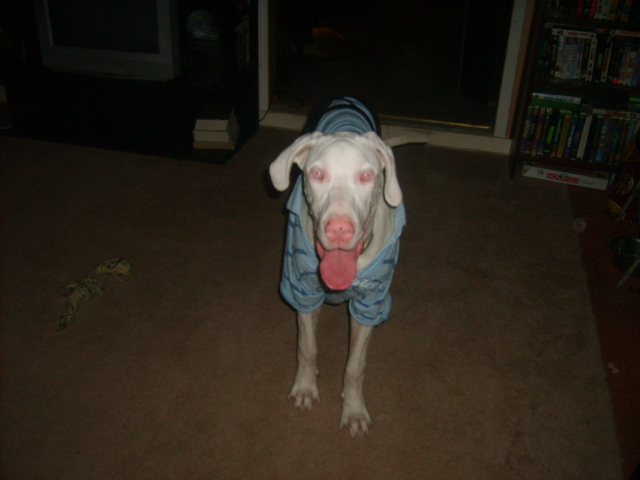 I am confussed about great dane colors
QuestionMy angel she likes to
QUESTION: Hello t
I am confussed about great dane colors
QuestionMy angel she likes to
QUESTION: Hello t
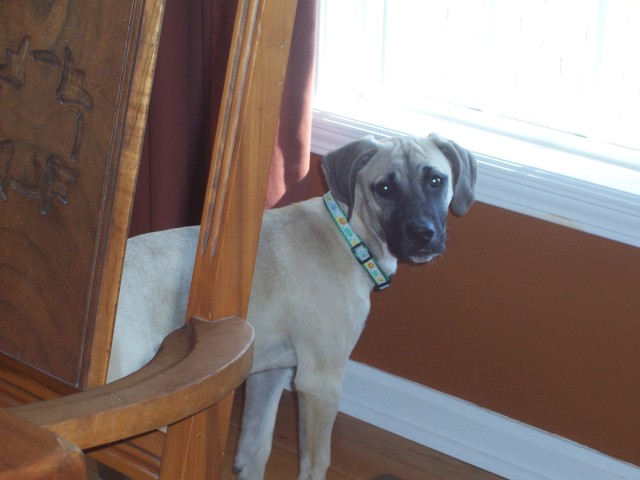 Purebred Dane or not?
QuestionMacy
QUESTION: We recently purchased a p
Purebred Dane or not?
QuestionMacy
QUESTION: We recently purchased a p
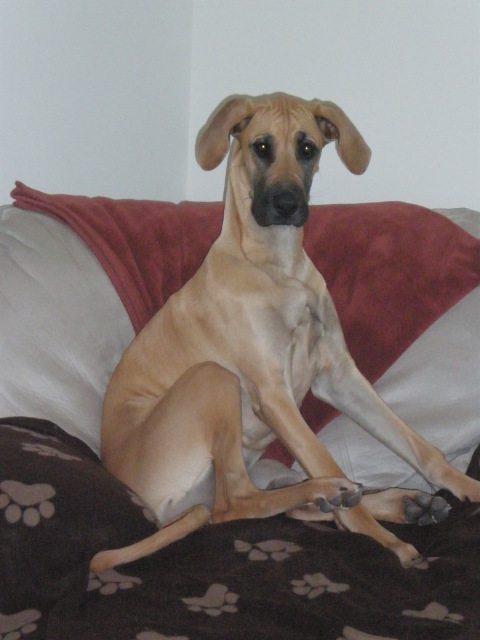 Food?
Question
Schatzi
Hi, we have a beautiful, female, faw
Food?
Question
Schatzi
Hi, we have a beautiful, female, faw
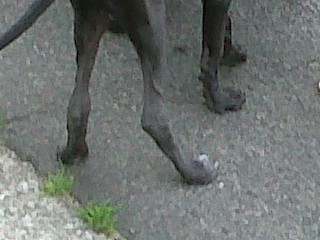 Great Dane rear leg direction
QuestionQUESTION: My 4 mo. old Danes rear feet slant to
Great Dane rear leg direction
QuestionQUESTION: My 4 mo. old Danes rear feet slant to
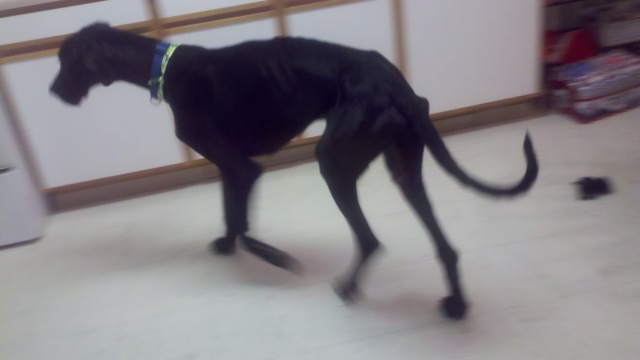 under weight
Question
Achilles
I have a 1 yr old male great dane and
under weight
Question
Achilles
I have a 1 yr old male great dane and